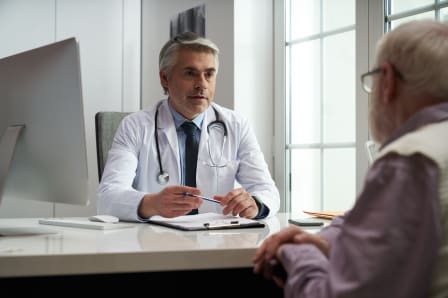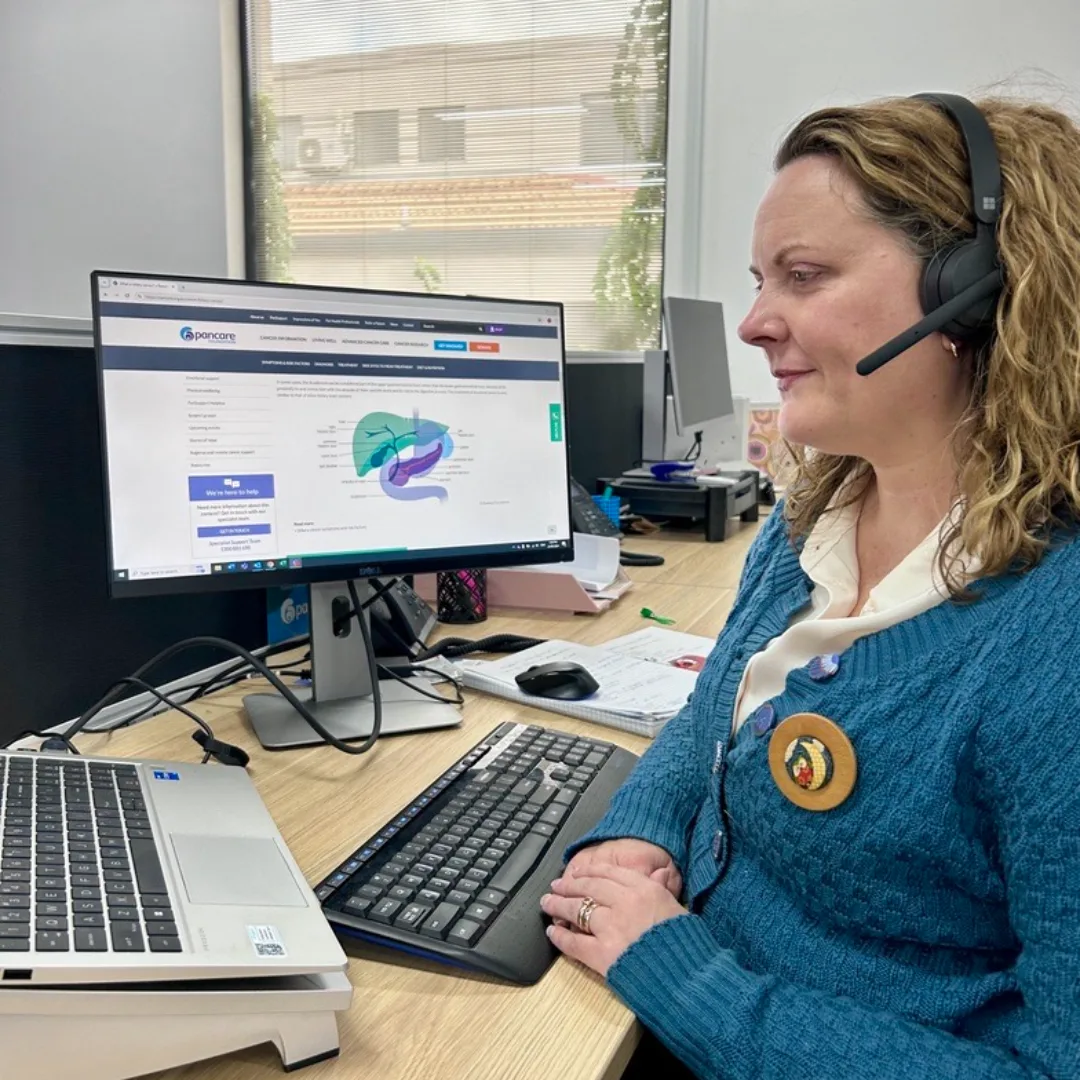Signs and symptoms of oesophageal cancer
It can be hard to spot the signs of oesophageal cancer. In the early stages, it often doesn’t cause any symptoms, so people might not know anything is wrong. This means someone can have the cancer for a while before it is found. When symptoms do appear, they can seem like other, less serious health problems—such as heartburn or a sore throat.
If something doesn’t feel right or you have symptoms that worry you, it’s important to see your GP. This page will help you understand what symptoms to look out for, what will happen when you visit your doctor, and what to expect if you need to see a specialist.
Signs and symptoms
Reaching a diagnosis of oesophageal cancer can be a long and challenging processes. Early symptoms of oesophageal cancer can be mild and easy to ignore.
As oesophageal cancer progresses, some common symptoms may include:
- difficult or painful swallowing
- heartburn or indigestion that doesn’t go away
- feeling of choking when swallowing or food getting stuck
- unexplained weight loss
- unexplained extreme tiredness (fatigue)
- persistent cough or hoarseness
- discomfort in the upper abdomen, especially when eating
- black stools
- blood in your vomit.
Important to know: These symptoms can be caused by many other conditions, not just oesophageal cancer. However, if you have any symptoms that persist, worsen, or cause concern, it's important to see your GP for assessment. They can arrange tests to help find the cause and, if needed, refer you to a specialist.
Seeing your GP
If you have pain in your chest, have worsening reflux, are finding it hard to swallow, are vomiting blood or are experiencing unexplained weight loss, tell your GP as soon as possible.
What to expect
Your GP will conduct a check-up to find out what's causing your symptoms.
They will:
- ask you about your symptoms and how long you've had them
- ask about your medical history
- perform a physical examination
- arrange any tests they feel are necessary, such as blood tests.
Be prepared
It can be helpful to write down your symptoms before your appointment, including when they started and whether they've changed over time.
If your GP has concerns based on your symptoms and initial tests, they will refer you to a specialist for further investigation.
Being referred to a specialist
If your GP has concerns about your symptoms, you will be referred to an oesophageal cancer specialist for further investigation.
You might see an oesophageal cancer specialist at a public hospital or in private practice.

Who are oesophageal cancer specialists?
Oesophageal cancer specialists are doctors who are highly trained in diagnosing and treating oesophagogastric cancer. They may include:
- upper gastrointestinal surgeons (specialists in oesophagus, stomach and upper digestive tract surgery)
- gastroenterologists (specialists in digestive system diseases).
How soon should I see an oesophageal cancer specialist?
Your specialist appointment should happen as soon as possible after referral, ideally within two weeks depending on the urgency of your symptoms. If you can't get an appointment within a reasonable time, follow up with your GP.
What should I bring to my specialist appointment?
You can bring a family member or friend with you to your appointments. They can help you remember what the doctor says, ask questions, and provide emotional support.
You should bring along any previous test results or medical records that might be relevant.
You may also want to bring a list of questions you'd like to ask, such as:
- What tests do I need and why?
- How long will it take to get results?
- What are the possible causes of my symptoms?
- What happens if cancer is found?
- How should I prepare for the endoscopy?
- When will I know the results?
- What are the next steps?
Want to talk?
Speak to an upper GI cancer nurse or counsellor, we're here to provide you with the support you need. Support available to anyone impacted by upper gastrointestinal (GI) cancer. Monday to Friday, 9am-5pm.
